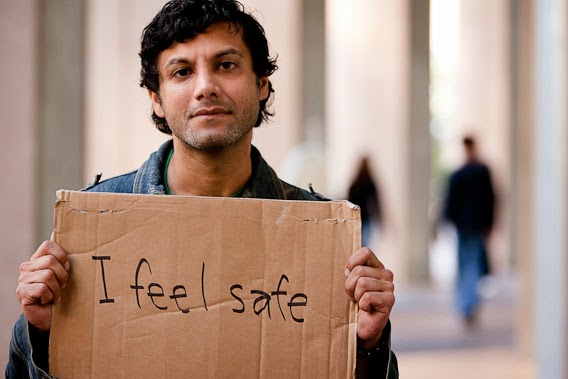

Security concerns in hotels are a paramount consideration for guests seeking a safe and enjoyable stay. Guests often wonder about the adequacy of security measures and their personal safety within the hotel environment. This article will delve into various security concerns, such as theft, fire risks, and staff responsiveness. We will also explore practical solutions and expert advice on staying safe and secure during your hotel stay. Furthermore, this article will discuss common security measures, potential risks, and precautions guests can take to ensure a smooth and worry-free experience. The structure of this article will cover common security concerns, practical measures, and how these measures impact the overall hotel experience.
Understanding Security Concerns
Identifying Common Issues
Security concerns in hotels encompass a wide spectrum of potential issues, ranging from the perceived lack of staff vigilance to the possibility of theft or other crimes. A primary concern for guests is the sense of safety and security during their stay, including potential threats like theft, loss of valuables, and physical harm. Inadequate lighting, poorly maintained security systems, or insufficient staff during quiet hours can contribute to this apprehension, leading to guests feeling uneasy. These concerns are amplified in areas with a history of crime or in locations where incidents have occurred. A thorough understanding of potential issues helps hotels proactively implement solutions.
Preventing Theft and Loss of Belongings
Implementing Secure Practices
Hotels can implement various strategies to mitigate the risk of theft and loss of belongings. These include providing guests with clear instructions on safekeeping valuables, reinforcing the importance of locking hotel rooms, and ensuring adequate lighting in hallways and public areas. Furthermore, hotels can enhance security by installing surveillance systems throughout the property, including common areas and guest rooms. Discreet cameras and well-lit corridors significantly deter unwanted activity, fostering a sense of security among guests. For instance, a hotel that implemented an app for guests to report incidents immediately experienced a significant decrease in theft reports. The key takeaway is that a comprehensive approach is essential to deter potential theft and to ensure guest security.
Addressing Fire Safety Concerns
Maintaining Up-to-Date Safety Procedures
Fire safety is another crucial aspect of security in hotels. Hotels should prioritize fire safety measures by maintaining up-to-date fire extinguishers, alarms, and emergency escape routes. Furthermore, regular fire drills can educate guests on proper procedures in the event of a fire, significantly enhancing safety. In a study conducted by the National Fire Protection Association (NFPA), hotels that conducted regular fire drills had a lower incidence of fire-related incidents. Maintaining these measures is paramount in ensuring guest safety and minimizing risks. Clear signage and well-maintained emergency exits are essential elements of an effective fire safety plan.
Staff Training and Responsiveness
Enhancing Security Through Trained Staff
Well-trained staff play a critical role in maintaining security and addressing guest concerns promptly. Staff should receive comprehensive training on security protocols, emergency procedures, and handling guest complaints related to security. Additionally, hotels should ensure a sufficient number of staff members are present, particularly during quiet hours, to respond to any security concerns efficiently. For instance, hotels with proactive staff often receive positive feedback from guests about their responsiveness and willingness to help during potential crises. Staff members should also be trained to identify and report suspicious activity promptly.
Guest Education and Communication
Empowering Guests with Safety Tips
Hotels can proactively educate guests about safety practices to ensure a secure stay. This can include providing guests with informational materials on security policies, emergency procedures, and contact information for security personnel. Guest communication should be clear and prompt, ensuring guests feel confident and informed during their stay. Also, clear signage and posters that outline safety protocols in multiple languages can significantly enhance guest understanding. This approach empowers guests to take proactive steps towards safeguarding their belongings and personal safety.
Frequently Asked Questions
What are the most common security concerns in hotels?
Common security concerns in hotels range from theft and loss of personal belongings to potential safety issues like fire hazards and lack of emergency response. These are often exacerbated by factors like insufficient staff at night, inadequate security measures, or outdated technology. Guests are often apprehensive about their personal safety and the security of their valuables. Understanding these concerns is crucial for a better guest experience, as security is a top priority for many travelers. Hotels should prioritize proactive measures to address these issues and create a secure environment for guests.
How can hotels enhance security measures to address guest concerns?
Hotels can significantly enhance security by implementing several measures. This includes investing in advanced security systems, such as CCTV surveillance and access control systems. Also, well-trained and responsive staff are crucial in providing timely assistance and addressing guest concerns. Regular security training for staff can significantly enhance their ability to identify and respond to potential threats. Moreover, clear communication regarding security protocols, emergency procedures, and contact information can provide a sense of security and assurance to guests.
What steps can guests take to enhance their personal safety while staying in a hotel?
Guests can proactively enhance their personal safety by keeping valuables secure, storing important documents safely, and being aware of their surroundings. Taking photos of valuable items and making note of room details before unpacking or leaving valuable items in the room is an added precaution. Staying aware of your surroundings, not sharing personal information with strangers, and following hotel safety recommendations are additional ways to ensure a safe and secure stay. Consider alerting hotel staff about valuable items left in the room or reporting suspicious activity immediately.
What are the impacts of poor security practices on hotel reputation and profitability?
Poor security practices can severely damage a hotel’s reputation and profitability. Negative reviews, arising from security concerns, can deter potential guests and lead to decreased occupancy rates. This can translate to financial losses and long-term reputational damage. Conversely, prioritizing security measures can bolster positive reviews and testimonials, increasing guest loyalty and confidence in the hotel’s commitment to safety. This also helps build a trustworthy reputation within the hospitality industry.
In conclusion, prioritizing security in hotels is paramount for a positive guest experience. By addressing concerns like insufficient staff, inadequate security measures, and potential theft risks, hotels can cultivate a safe and secure environment. Investing in updated security systems, well-trained staff, and transparent communication channels will reassure guests and contribute to a more positive and memorable stay. For further insights, explore hotel safety resources, and consider booking accommodations that explicitly highlight their safety protocols. This will directly impact your next stay and provide peace of mind during your trip.